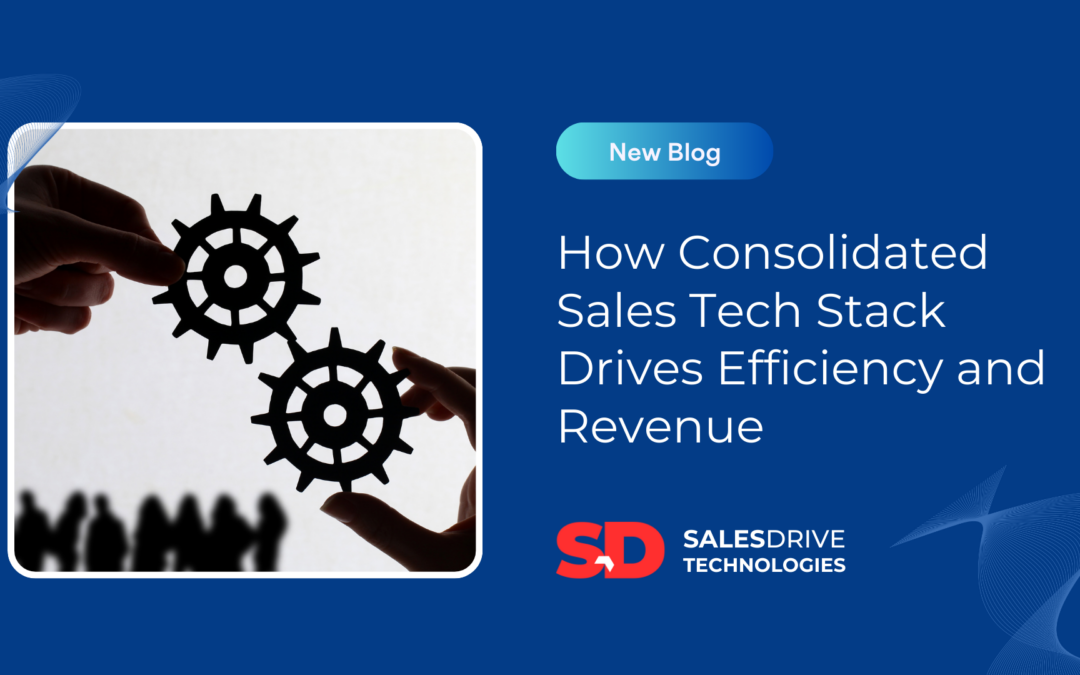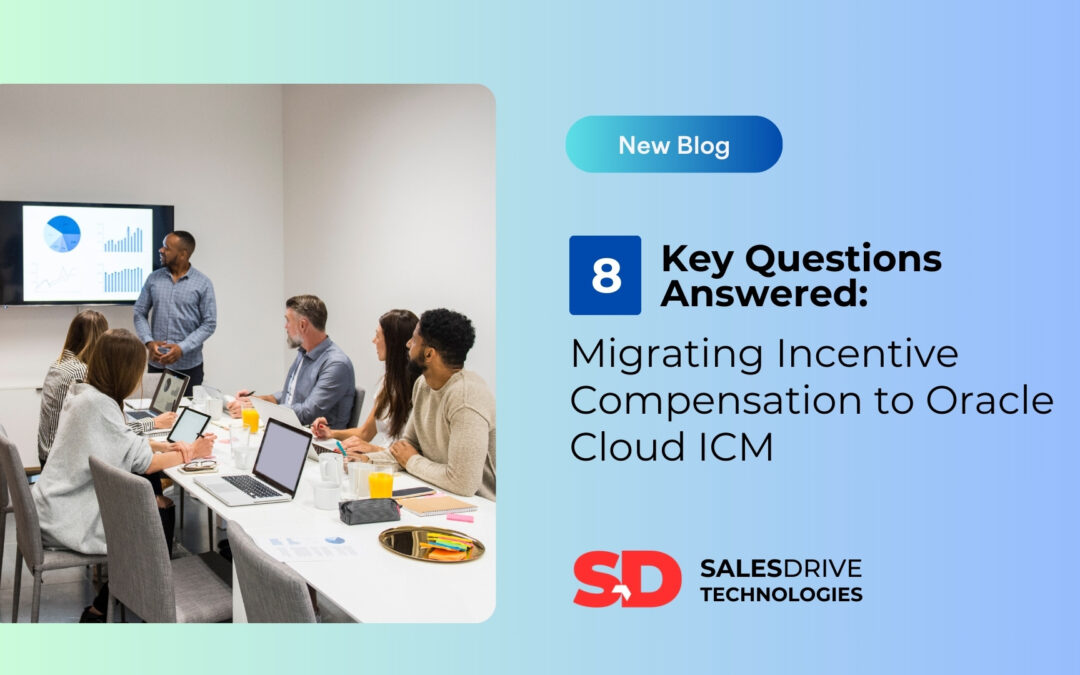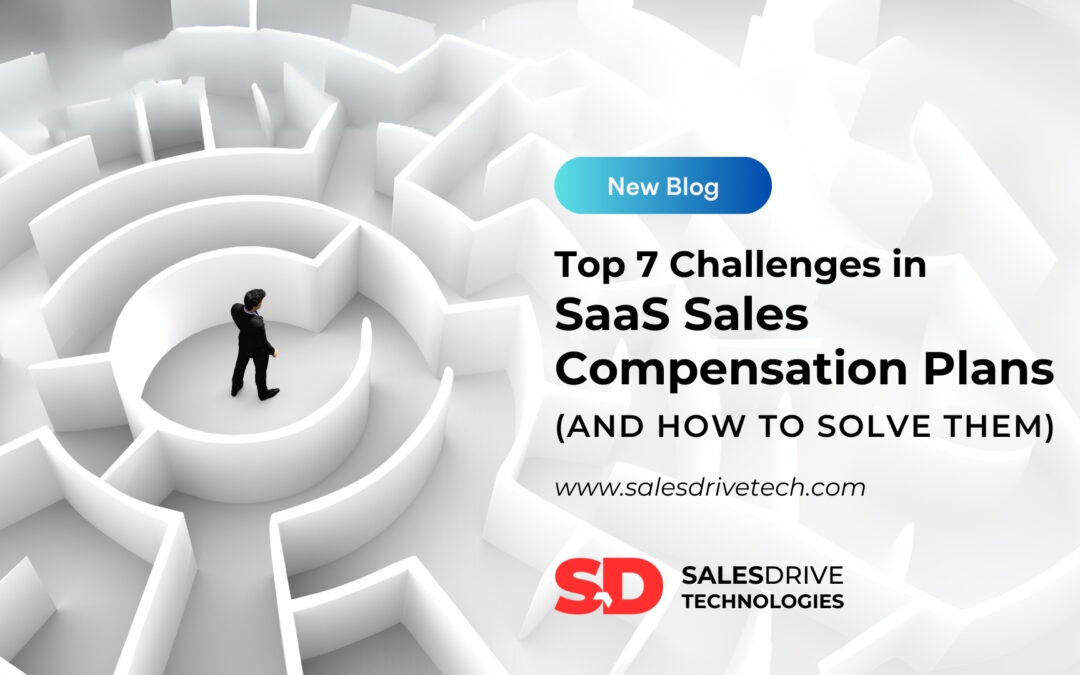Introduction
In sales, compensation plans play a pivotal role in driving the behavior of sales teams. They serve as a roadmap, guiding sales representatives towards the strategic goals of an organization. However, not all roads lead to the desired destination. Some compensation structures can inadvertently create perverse incentives, leading sales teams down a path that might be detrimental to the organization’s overall objectives.
Perverse incentives in sales compensation emerge when the reward system encourages behaviors that conflict with the broader goals of the organization.
For instance, a compensation plan that heavily rewards new customer acquisition might lead sales representatives to focus solely on bringing in new business, neglecting the nurturing of existing customers in the process. This could result in a decline in customer satisfaction and retention rates, ultimately impacting the organization’s bottom line.
Enter Artificial Intelligence (AI). With its ability to analyze vast amounts of data, identify patterns, and predict outcomes, AI has the potential to revolutionize sales compensation. It can provide the insights needed to design compensation plans that align with the organization’s strategic goals, discourage perverse incentives, and drive optimal sales performance.
In this blog, we will explore how Oracle’s Incentive Compensation Management (ICM), backed by the robust AI capabilities of Oracle Cloud Infrastructure (OCI), can help organizations navigate the complex landscape of sales compensation and avoid the pitfalls of perverse incentives. We will also highlight the role of Sales Drive Technologies, a solution implementor for Oracle ICM, in this journey. Let’s dive in!
Understanding Perverse Incentives
Perverse incentives in sales compensation occur when the reward system unintentionally promotes behaviors that contradict the broader objectives of the organization. These incentives can lead to unexpected and often undesirable results, proving to be counterproductive. Here are three historical real life examples of how this can happen.
The Cobra Effect: This term originated from an incident during British rule in India. The British government was concerned about the number of venomous cobra snakes in Delhi. They offered a bounty for every dead cobra, which initially was a successful strategy as large numbers of snakes were killed for the reward. However, people began to breed cobras for the income. When the government became aware of this, the reward program was scrapped, causing the cobra breeders to set the now-worthless snakes free. As a result, the wild cobra population further increased.
Incentivizing doctors to carry out tests in Switzerland: In Switzerland, a unique system allows both family doctors and specialists to conduct their own laboratory tests within their practices. This system was designed with the intention of providing comprehensive and immediate care to patients. However, it led to an unintended consequence. The financial incentives associated with conducting these tests led to a significant increase in the number of tests being carried out, many of which were unnecessary. This not only increased healthcare costs but also potentially exposed patients to unnecessary procedures.
Rewarding hospitals for prescribing drugs in China: In many emerging markets, including China, hospitals generate a significant portion of their income from the resale of drugs. This system was intended to ensure the availability of necessary medications within the hospital premises. However, it created a perverse incentive. Hospitals, driven by the profit motive, began overprescribing medications. Doctors were even given prescription targets, leading to overtreatment. This not only inflated healthcare costs but also put patients at risk due to excessive medication.
Impact of Perverse Incentives on an Organization
Perverse incentives can have a significant impact on Incentive Compensation Management (ICM). They can lead to behaviors that, while beneficial for the individual, can be detrimental to the organization as a whole. Here are a few potential impacts:
1. Misalignment with Organizational Goals:
Perverse incentives can lead to behaviors that are not aligned with the organization’s strategic goals. For instance, if a sales compensation plan heavily rewards new customer acquisition, sales representatives might focus solely on bringing in new business, neglecting existing customers in the process.
2. Unethical Behavior:
Perverse incentives can encourage unethical behavior. For example, if a compensation plan rewards employees based on the number of sales, it might lead some employees to use aggressive or misleading sales tactics to meet their targets.
3. Reduced Employee Morale:
If employees feel that the compensation plan is unfair or encourages unethical behavior, it can lead to reduced morale and job satisfaction. This can result in decreased productivity and higher turnover rates.
4. Increased Costs:
Perverse incentives can lead to increased costs for the organization. For example, if a compensation plan rewards quantity over quality, it might lead to higher production costs, more product returns, and decreased customer satisfaction.
To avoid these issues, it’s crucial for organizations to carefully design their incentive compensation plans. They should align the incentives with the organization’s strategic goals, promote ethical behavior, and ensure fairness. Regular reviews and adjustments of the incentive structures can help prevent the emergence of perverse incentives.
Role of AI in Preventing Perverse Incentives
Artificial Intelligence (AI) plays a crucial role in preventing perverse incentives in several ways:
-
-
- Predictive Analysis: AI can analyze vast amounts of data and identify patterns that humans might miss. This can help predict the potential impact of different compensation structures, helping organizations choose the ones that align best with their strategic goals.
- Behavioral Insights: AI can provide insights into employee behavior, helping organizations understand what motivates their employees. This can help in designing compensation plans that encourage desired behaviors and discourage perverse incentives.
- Real-time Adjustments: AI can monitor the effects of a compensation plan in real-time and suggest adjustments as needed. This can help in quickly identifying and rectifying any perverse incentives.
- Personalization: AI can help in designing personalized compensation plans that take into account the individual preferences and motivations of each employee. This can help in creating a fair and motivating compensation plan, reducing the chances of perverse incentives.
- Scenario Analysis: AI can simulate various scenarios to predict the outcomes of different compensation strategies. This can help in identifying any potential perverse incentives before implementing the compensation plan.
-
By leveraging these capabilities, organizations can use AI to design effective and fair compensation plans that align with their strategic goals and discourage perverse incentives.
How Oracle’s ICM Powered by OCI’s AI Capabilities Can Help in Prevention of Perverse Incentives
Oracle’s Incentive Compensation Management (ICM), backed by the robust AI capabilities of Oracle Cloud Infrastructure (OCI), can help organizations navigate the complex landscape of sales compensation and avoid the pitfalls of perverse incentives. Here’s how:
1. Predictive Analysis:
Oracle ICM, powered by OCI’s AI, can analyze vast amounts of data and identify patterns that humans might miss. This can help predict the potential impact of different compensation structures, helping organizations choose the ones that align best with their strategic goals.
2. Behavioral Insights:
Oracle ICM can provide insights into employee behavior, helping organizations understand what motivates their employees. This can help in designing compensation plans that encourage desired behaviors and discourage perverse incentives.
3. Real-time Adjustments:
Oracle ICM can monitor the effects of a compensation plan in real-time and suggest adjustments as needed. This can help in quickly identifying and rectifying any perverse incentives.
4. Personalization:
Oracle ICM can help in designing personalized compensation plans that take into account the individual preferences and motivations of each employee. This can help in creating a fair and motivating compensation plan, reducing the chances of perverse incentives.
By leveraging these capabilities, organizations can use Oracle ICM to design effective and fair compensation plans that align with their strategic goals and discourage perverse incentives.
Role of Sales Drive Technologies in Implementing AI Based Oracle ICM Solutions
Sales Drive Technologies, as a solution implementor for Oracle ICM, plays a pivotal role in helping organizations prevent perverse incentives in their sales compensation plans. Here’s how they can help:
1, Expertise in Sales Compensation:
Sales Drive Technologies has a deep understanding of sales compensation and the challenges that organizations face in designing effective compensation plans. They can help organizations identify potential perverse incentives in their existing compensation plans and suggest modifications to prevent them.
2. Leveraging Oracle ICM’s AI Capabilities:
Oracle ICM, powered by the robust AI capabilities of Oracle Cloud Infrastructure, can analyze vast amounts of data and identify patterns that humans might miss. This can help predict the potential impact of different compensation structures, helping organizations choose the ones that align best with their strategic goals. Sales Drive Technologies, with their expertise in Oracle ICM, can effectively leverage these AI capabilities to design compensation plans that discourage perverse incentives.
3. Personalized Compensation Plans:
Every organization is unique, and so are its sales compensation needs. Sales Drive Technologies can help design personalized compensation plans that take into account the individual preferences and motivations of each employee. This can help in creating a fair and motivating compensation plan, reducing the chances of perverse incentives.
4. Ongoing Support and Adjustments:
The work doesn’t stop at designing the compensation plan. Sales Drive Technologies provides ongoing support and makes adjustments as needed based on the performance of the compensation plan. This ensures that any emerging perverse incentives are quickly identified and rectified.
5. Training and Change Management:
Implementing a new compensation plan can be a significant change for an organization. Sales Drive Technologies can help manage this change by providing training to the sales team and other stakeholders. This ensures that everyone understands the new compensation plan and its benefits, leading to better acceptance and implementation.
Sales Drive Technologies, with its expertise in sales compensation and Oracle ICM, can be a valuable partner for organizations looking to prevent perverse incentives in their sales compensation plans. Their services can lead to more effective and fair compensation plans, improved sales performance, and ultimately, a stronger position in the market.
Conclusion
Wrapping up, the fusion of AI capabilities with Oracle Cloud Infrastructure (OCI) ushers in a new era for Oracle’s Incentive Compensation Management (ICM). The AI functionalities not only augment the existing features of Oracle ICM but also offer a competitive advantage. Oracle ICM, fortified by the robust AI capabilities of OCI, holds its ground against its rivals.
Yet, this is just the beginning. The ongoing advancements in AI technologies pave the way for Oracle to further harness the AI capabilities of OCI. This could lead to the creation of more sophisticated features, an enhanced user experience, and ultimately, a stronger market presence. It will be fascinating to observe how Oracle charts this course and shapes the future of ICM with its trailblazing AI-centric strategies.
Furthermore, the role of solution implementers like Sales Drive Technologies is instrumental in this journey. Their profound understanding of both sales compensation and AI enables Sales Drive Technologies to offer invaluable guidance and support to organizations aiming to optimize their sales compensation plans with AI. Their services can result in more effective and equitable compensation plans, improved sales performance, and ultimately, a stronger market position.




